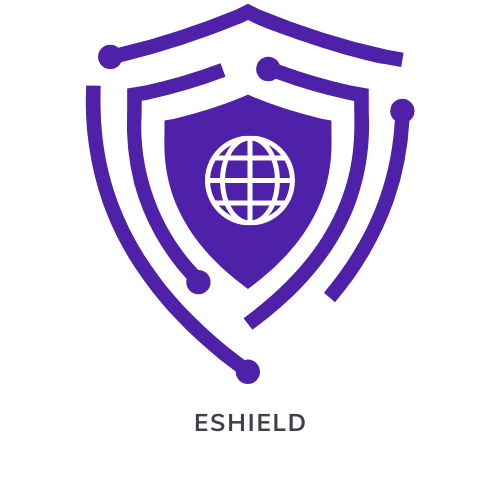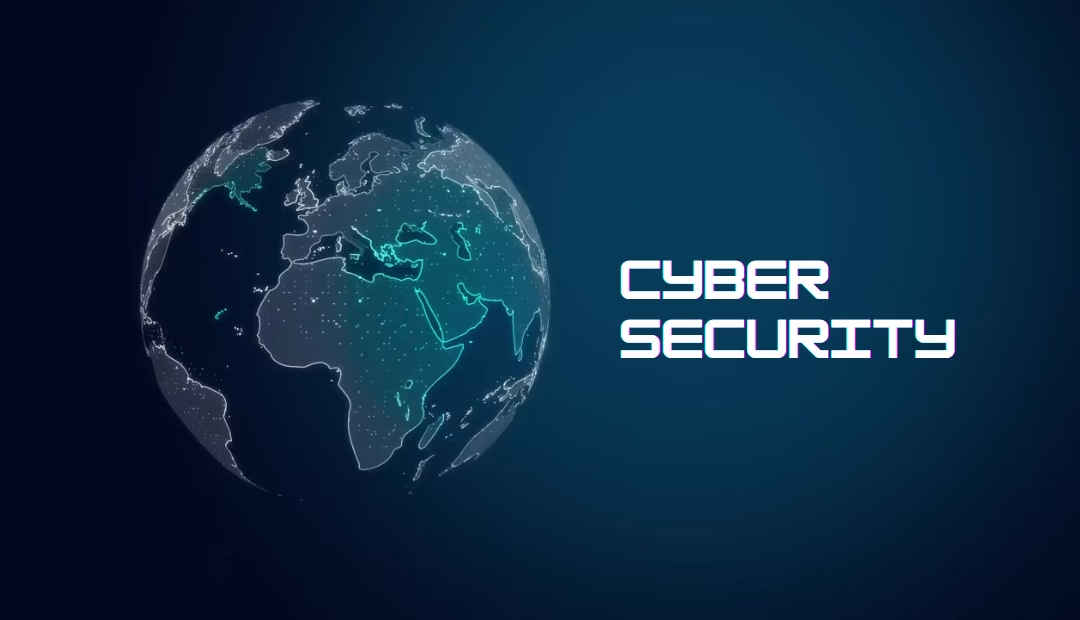Cyber Security You Can Count On for Total Protection
The UAE’s digital world is growing fast. We see more online banking, telehealth, smart government, and energy systems. This growth means we must protect our data and systems well.
Cyber security is now a key part of business. It keeps our data safe and helps us grow.
Threats have changed a lot. Now, we face ransomware, phishing, and more. These threats can harm our systems and steal our data.
Without good cyber security, one attack can stop us. It can also cost us money and hurt our reputation.
Being ready for attacks is key. We need to have strong plans in place. This includes things like keeping our systems safe and knowing how to handle attacks.
Having the right people in charge helps too. They make sure cyber security is part of our growth plans.
The UAE has a plan to keep its digital world safe. It’s all about working together and being ready for threats. This helps us keep our data safe and trust our digital world.

Key Takeaways
- Cyber security keeps our data safe and our digital world trustworthy.
- New threats are sneaky and can harm our systems and data.
- We need to invest in cyber security to protect ourselves.
- Using strong security tools helps keep us safe.
- Working together and following plans helps us stay safe.
- Being ready for attacks helps us grow and stay safe.
Understanding the business impact in the UAE market
The UAE values companies that focus on security. This approach leads to faster deals and smoother audits. It also builds trust with partners.
UAE cyber regulations, data residency, and sectoral compliance guide daily choices. This includes cloud options and vendor selection.

Regulatory expectations and regional nuances
Companies face many laws in the UAE. The DIFC DP Law rules Dubai International Financial Centre. NESA standards set the baseline for critical sectors.
Organizations must follow both local and global laws. They need to map data flows and follow breach notification rules.
Cross-border data transfers need lawful bases and limits. Keeping records and access controls is key. This supports audits and sectoral compliance.
Choosing the right cloud and backup locations is important. It helps growth without slowing down.
Reputation, trust, and customer retention
In banking, aviation, and hospitality, trust matters a lot. A breach can harm reputation and renewal rates. Following UAE cyber laws and NESA standards helps.
Customers value transparency. Quick, accurate updates and proven fixes show maturity. This builds loyalty and reduces churn.
Cost of breaches versus proactive security investment
Breaches cost more than just recovery. There are penalties, downtime, lost pipeline, and higher insurance. Investing in security reduces these risks.
Having plans and doing drills helps respond faster. This saves revenue and keeps operations steady.
How eshielditservices supports UAE organizations
eshielditservices helps with DIFC DP Law, NESA standards, and sectoral compliance. They support leaders in implementing controls without disrupting operational efficiency. Services span compliance readiness, policy development, and security architecture. The firm also delivers SOC support and incident response planning to strengthen organizational resilience.
As a cyber security company in Dubai, they work with local businesses. They understand data residency, regional workflows, and multilingual training needs. They offer continuous monitoring and clear reports to keep risk in check.
cyber security
A strong cyber security strategy in the UAE starts with clear principles and simple controls. Teams verify every request and limit access by role. They plan as if attackers are already inside.
Zero Trust at the Core
This is the heart of zero trust. It fits the fast-moving threat landscape UAE organizations face in finance, energy, healthcare, and government.
Identity and Access Management
People and identities sit at the core. Mature identity and access management protects users, admins, and workloads. Multi-factor authentication blocks common takeover attempts.
It adds a quick, high-impact layer for remote staff and contractors. Privileged access is time-bound and audited to cut lateral movement.
Securing Cloud Adoption
Cloud adoption on Microsoft Azure, Amazon Web Services, and Google Cloud changes the attack surface. Microsegmentation, secure access service edge, and cloud security posture management help keep paths narrow and policies consistent.
Data Security and Compliance
Data is classified, then encrypted in transit and at rest. Keys are managed and logged for audit needs under UAE and free-zone rules.
Endpoint and Application Hardening
Endpoints and apps need hardening to hold the line. Baselines aligned to CIS Benchmarks, regular patch management, and secure configuration reduce noise that hides real threats.
EDR with behavioral analytics watches for unusual actions. SIEM use cases focus on business risks, not just alerts.
Incident Response and Resilience
Response must be swift and practiced. SOAR playbooks contain high-confidence events, from isolating a host to disabling a token. Immutable, offline backups and tested restores limit downtime in ransomware events.
The Role of ISO 27001 Consultants
An ISO 27001 consultant maps risks to controls. They guide leaders on metrics so improvements are visible and steady..

| Focus Area | Key Practices | UAE Relevance | Measurable Outcome |
|---|---|---|---|
| Identity and access management | Role-based access, just-in-time admin, multi-factor authentication | Controls remote and vendor access across free zones and regulated sectors | Lowered account takeover rates; shorter admin session windows |
| Zero trust architecture | Verify explicitly, least privilege, continuous evaluation | Mitigates lateral movement in hybrid offices across Dubai and Abu Dhabi | Reduced high-risk pathways; fewer excessive permissions |
| Cloud security | Microsegmentation, SASE, CSPM, CWPP, encryption with managed keys | Supports Azure, AWS, and Google Cloud adoption under local regulations | Fewer misconfigurations; compliant encryption and logging |
| Endpoint and application hardening | CIS-aligned baselines, patching, secure configs, code signing | Stabilizes diverse fleets for government and private sector projects | Smaller attack surface; faster patch SLAs |
| Detection and response | Centralized logging, SIEM use cases, EDR, SOAR automation | Addresses the evolving threat landscape UAE organizations face | Lower mean time to detect and respond; automated containment |
| Resilience | Immutable, offline backups; tested recovery procedures | Limits business disruption during regional ransomware spikes | Reliable restore times; integrity checks passed |
| Governance and guidance | Risk mapping, KRIs, audit readiness with an iso 27001 consultant | Aligns programs with ISO 27001 and local audit expectations | Traceable control efficacy; executive-level reporting |
This mix keeps strategy practical. It blends zero trust with cloud controls, strong identity, and clear measurements. This way, teams can adapt as the threat landscape UAE evolves.
Building a resilient posture with compliance and governance
Strong security in the UAE comes from clear rules and constant checks. Leadership support is key. ISO/IEC 27001:2022, governance risk compliance (GRC), and training make policies real. This creates a program that adapts and protects trust and revenue.
Aligning with ISO 27001 and the role of an iso 27001 consultant
ISO/IEC 27001:2022 is a guide for ISMS with clear rules. An iso 27001 consultant helps set up the system. In the UAE, this work follows NESA and the National Cybersecurity Strategy.
Consultants help with risk reviews and audits. They make sure all evidence is clear and easy to check.
Risk management frameworks and executive oversight
ISO 27005 or NIST CSF 2.0 guides risk management. It helps identify, assess, treat, and monitor risks. Risk registers link threats to assets and owners.
Boards get clear reports and key risk indicators. This helps keep priorities and budgets on track.
Policy, training, and culture as defense multipliers
Clear policies guide daily decisions. Short training sessions build security awareness. Developers learn secure coding in real workflows.
Track progress with metrics like phishing rates. Visible improvements strengthen culture and reduce risk.
Third-party and supply chain security considerations
Modern systems rely on cloud and fintech APIs. Vendor risk management starts with due diligence UAE. Use structured questionnaires and clear breach terms in contracts.
Ask for SOC 2 Type II attestations and review software bills. These steps control risk across the chain.
Proactive defense: testing, monitoring, and trusted partners
Modern attacks move fast, so defense must move faster. Teams in the UAE blend testing, continuous monitoring, and expert partners to cut risk and keep services online. This approach turns controls into measurable outcomes and keeps leadership informed.
Vulnerability assessment and penetration testing for continuous assurance
Start with structured vulnerability assessment and penetration testing. Scan networks, web apps, APIs, mobile, and OT assets. Then, fix the most critical issues first.
Run tests every quarter or when big changes happen. This way, you can fix problems quickly. It helps keep your systems safe and running smoothly.
Threat detection, SIEM, and incident response readiness
A tuned SIEM UAE deployment checks identity, endpoint, firewall, cloud, and OT logs. It finds early warning signs like impossible travel and suspicious API calls.
Playbooks help with incident response. They guide teams on what to do in emergencies. Regular drills make everyone ready to act fast.
Selecting a cyber security company dubai organizations can rely on
Look for a cyber security company dubai that knows local laws well. They should offer 24/7 help and understand regional threats. Make sure they know cloud and OT security too.
Choose a partner that fits your team and tools. They should help improve detection and keep up with changes.
Case-style comparison: in-house vs. managed security with eshielditservices
Building an in‑house SOC means hiring experts and managing tools. It can be hard to keep up, leading to alert fatigue.
With managed security services from eshielditservices, you get fast setup and expert help. Hybrid models offer strategy in-house and outsourced monitoring and testing.
| Approach | Strengths | Resource Needs | Detection & Monitoring | Response Capability | Typical Fit |
|---|---|---|---|---|---|
| In‑House SOC | Direct control; custom workflows | High staffing; tooling spend; continuous tuning | Depends on internal maturity; may lag continuous monitoring goals | Limited after‑hours; escalation depth varies | Large enterprises with established teams |
| Managed Security with eshielditservices | Faster time‑to‑value; regional expertise; cost efficiency | Subscription model; shared platform and analysts | 24/7 coverage via SIEM UAE use cases and analytics | Seasoned incident response and threat hunting on demand | Mid‑market and enterprises seeking scale |
| Hybrid Model | Strategic control with outsourced execution | Focused internal leads; partner for operations | Partner‑led managed security services plus internal tuning | Shared playbooks; joint exercises | Organizations balancing cost and agility in Dubai |
Choose a model that fits your goals. Aim for quick detection, clean patches, and fewer big problems. Work with trusted partners to help when needed.
Conclusion
Cyber security is now a key driver for growth in the UAE. It keeps data and operations safe. This helps in digital growth in finance, energy, healthcare, and government.
Using a risk-based approach and following ISO 27001 and NIST, companies reduce risks. They also gain customer trust. This makes businesses stronger and more reliable.
Leaders who invest in cyber security see fewer breaches. This makes their businesses more attractive to customers. It also helps in passing audits.
Having good policies and training is important. It keeps teams ready for any situation. Working with trusted partners adds more strength to a company’s defenses.
eshielditservices helps UAE businesses use best practices. They do this while keeping costs low. This way, companies can grow safely and keep customer trust.
FAQ
Why is cyber security important for an organization?
Cyber security keeps your data safe and your business running. It also helps you follow the law. In the UAE, attacks can harm your business a lot.A good security plan helps you grow and stay safe.
What specific threats are UAE organizations facing today?
Threats include ransomware and attacks on cloud and OT systems. These threats can hurt your business a lot.Using tools like EDR and MFA can help protect you.
How do UAE regulations affect my security program?
You need to follow UAE laws and rules. This includes the UAE Cybersecurity Council and the UAE Personal Data Protection Law.Free zones have their own rules too. You need to follow these rules to keep your data safe.
How does strong security improve reputation and customer trust?
Showing you have good security makes people trust you. This is important in banking and other services.Being open about security issues helps too. It shows you are responsible and trustworthy.
Is proactive security investment cheaper than dealing with breaches?
Yes, it is. Breaches cost a lot of money. Investing in security can save you money in the long run.Tools like EDR and SIEM help prevent breaches.
What is the role of an ISO 27001 consultant?
An ISO 27001 consultant helps you set up a security plan. They do risk assessments and create a plan.They also help you meet UAE laws and standards. This keeps your security up to date.
How does Zero Trust apply to UAE businesses?
Zero Trust means you always check who is accessing your systems. It’s about least privilege and assuming you’re under attack.Use identity governance and MFA to protect your systems. This keeps your data safe.
How should we secure cloud platforms like Azure, AWS, and Google Cloud?
Use tools like CSPM and CWPP to keep your cloud safe. Make sure your data is encrypted.Log your activities and use IAM to control access. This keeps your cloud secure.
What boosts detection and response maturity?
Using tools like SIEM and EDR helps a lot. They help you find and fix problems fast.Have a plan for when things go wrong. This helps you recover quickly.
How do vulnerability assessment and penetration testing help?
These tests find weaknesses in your systems. They help you fix problems before they get worse.They also check if your controls work. This keeps your systems safe.
What should I look for in a cyber security company Dubai organizations can trust?
Look for a company that knows UAE laws. They should have a 24/7 team and know about cloud and OT security.Check their SLAs and how they report. They should fit your company’s culture and speak your language.
How does eshielditservices support UAE organizations?
eshielditservices helps you follow UAE laws. They offer security services and help you plan for security.They have a team in Dubai. They understand data residency and language needs.
In-house SOC or managed security—what’s the smarter choice?
Managed security is often better. It’s faster and more affordable. It also has experts ready to help.Keep strategy in-house. Use managed services for monitoring and testing.
Which frameworks help with risk management and oversight?
NIST CSF 2.0 and ISO 27005 are good frameworks. They help you manage risks and make decisions.Have a cyber risk committee and report to the board. This keeps everyone informed.
How do policies and training reduce risk?
Good policies and training are key. They guide your team and keep them safe.Track how well your training works. This helps you improve.
What about third-party and supply chain security?
Check your vendors carefully. Use questionnaires and ask for breach notifications.Control access to your systems. Monitor your vendors closely. This keeps your supply chain safe.


